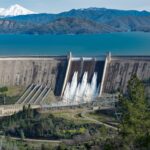India’s Olympic Dream: The 2036 Ambition and Gujarat’s Pivotal Role Prime Minister Narendra Modi has boldly declared India’s ambition to host the 2036 Olympic Games, with Gujarat emerging as the potential centerpiece of this monumental national aspiration. While the dream is grand, the journey ahead is complex and challenging.
The National Vision
On Independence Day 2024, Modi announced India’s clear goal to host the Olympics, citing the country’s successful organization of over 200 G20 events as proof of its capability.
The International Olympic Committee (IOC) head Thomas Bach has already backed this audacious plan, signaling international interest.
Current Sports Infrastructure Landscape
The current sports infrastructure in India reveals significant gaps. Only 10.4 percent of mapped sports facilities across states and Union Territories meet Olympic standards.
Some states like Bihar, Arunachal Pradesh, and Meghalaya have zero Olympic-standard sporting infrastructure.
Gujarat: The Emerging Olympic Hub
Strategic Infrastructure Development
Gujarat has emerged as the focal point of India’s Olympic bid, with several ambitious projects underway:
- Sardar Vallabhbhai Patel Sports Enclave:
- Located in Motera region
- Houses the world’s largest cricket stadium
- Planned multi-purpose venues including:
- Indoor arena
- Aquatics center
- Tennis facilities
- Temporary venues for volleyball, basketball, and urban sports
- Financial Commitment:
- Gujarat has earmarked Rs 6,000 crore for Olympic infrastructure
- Created ‘Gujarat Olympic Planning and Infrastructure Corporation Ltd’
- Developing six dedicated sports complexes
Multi-City Olympic Strategy
While Ahmedabad remains central, India is adopting a pan-India approach:
- Hockey in Bhubaneswar
- Rowing in Bhopal
- Canoeing and Kayaking in Pune
- Cricket in Mumbai
Challenges and Roadblocks
Infrastructural Limitations
- Only 43 Olympic-level sports facilities exist in Gujarat
- Significant investment and rapid development required
- Need for world-class infrastructure meeting international standards
Organizational Hurdles
The Indian Olympic Association (IOA) faces internal challenges:
- Administrative paralysis
- Conflicts between leadership
- Potential credibility issues with international stakeholders
Competitive Landscape
India is not alone in bidding. Competing nations include:
- Qatar
- Saudi Arabia
- At least 10 other countries expressing interest
The IOC is unlikely to decide the host city before 2026, leaving room for strategic positioning.
Strategic Preparation
India’s preparation extends beyond infrastructure:
-
- Targeting international multi-disciplinary events
- Planned hosting of:
- 2028 World U20 Athletics Championships
- 2028 Asian Swimming Championship
- Youth Olympics in 2030
- World Police and Military Games
Critical Success Factors
To successfully host the Olympics, India must address:
- Athlete accommodations
- Equipment quality control
- Transportation systems
- Technical official training
- Performance enhancement
- International hospitality standards
Economic and Demographic Advantages
Potential strengths in India’s bid include:
- Massive, young demographic
- First-time hosting in this global region
- Rapidly growing economy
- Cultural diversity
The Road Ahead
While the dream is ambitious, significant work remains. The government and sports bodies must:
- Resolve IOA internal conflicts
- Accelerate infrastructure development
- Enhance athlete training programs
- Build international credibility
India’s 2036 Olympic bid is more than a sporting event—it’s a national mission of infrastructure development, international reputation building, and showcasing India’s potential on the global stage. Gujarat stands at the heart of this transformative journey, with ambitious plans that could redefine India’s sporting landscape. The next decade will be crucial in determining whether this Olympic dream becomes a reality.



